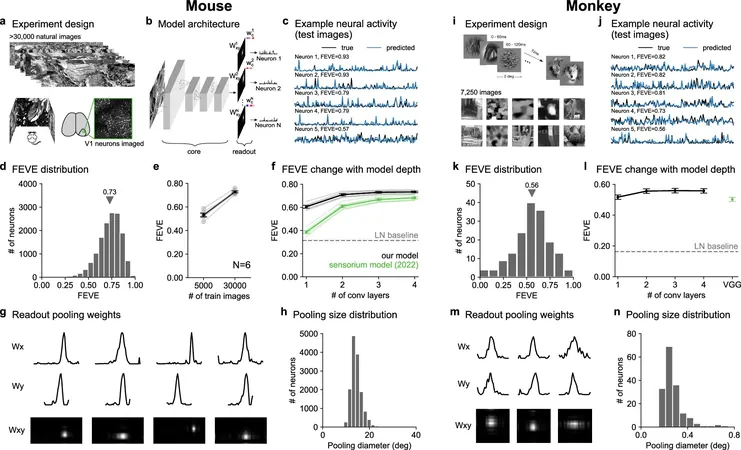
Shocking Link Between COVID-19 and Chronic Fatigue Syndrome Revealed!
2025-01-15
Author: Wei Ling
Introduction
As the world grapples with the aftermath of the COVID-19 pandemic, researchers continue to uncover alarming new information about the long-term effects of the virus. A recent study has drawn a startling connection between COVID-19 infection and the onset of myalgic encephalomyelitis/chronic fatigue syndrome (ME/CFS), a debilitating condition that has been historically linked to viral infections.
Study Findings
Published in the Journal of Internal Medicine, the study highlights that nearly 5% of individuals diagnosed with COVID-19 who participated in the study within six months after their infection developed ME/CFS approximately six months later. This stark contrast to the mere 0.6% incidence rate among those who were not infected with COVID-19 indicates a significant uptick in ME/CFS cases attributed to the viral infection.
NIH RECOVER Initiative
As part of the National Institutes of Health (NIH) initiative known as the Researching COVID to Enhance Recovery (RECOVER) Initiative, researchers assessed a large sample size of 11,785 COVID-19 survivors alongside 1,439 uninfected volunteers serving as a control group. The findings are nothing short of eye-opening and suggest that ME/CFS could be one of the many complications stemming from COVID-19.
Understanding ME/CFS
ME/CFS is recognized as a chronic and often debilitating illness characterized by extreme fatigue that does not improve with rest, post-exertional malaise, cognitive impairments, and a host of other troubling symptoms that can linger for months or even years. This condition has previously been associated with other viral infections such as Epstein-Barr virus, but the current study suggests a dramatic rise in cases is being seen post-COVID.
Significant Increase
Interestingly, researchers noted that the incidence of ME/CFS after COVID-19 infection appears to be nearly 15 times higher than the pre-pandemic rates. This raises urgent questions about the long-term health impacts of SARS-CoV-2 and its virulence.
Long COVID Concerns
The implications of long COVID—an overarching term encompassing lingering symptoms such as fatigue, pain, and cognitive dysfunction—further complicate the picture. Recent estimates suggest that between 6% to an astonishing 20% of those who have contracted SARS-CoV-2 may experience long COVID, leading to decreased quality of life and ongoing health challenges.
Ongoing Research
Scientists are racing to understand the mechanisms behind these symptoms, with various theories gaining traction. Persistent inflammation, lingering viral fragments, and vascular complications are all potential culprits contributing to the lingering effects of COVID-19. Given the complexity of long COVID, the causative factors may differ significantly from one patient to another.
Conclusion
As researchers delve deeper, the urgency of addressing these emerging health challenges becomes increasingly clear. The long-term ramifications of this pandemic are still unfolding, and understanding the potential for developing conditions like ME/CFS is critical for patient care and public health. Stay informed about the evolving narratives surrounding COVID-19 and its long-term effects, as new insights continue to emerge and shape our understanding of this unprecedented global health crisis.



 Brasil (PT)
Brasil (PT)
 Canada (EN)
Canada (EN)
 Chile (ES)
Chile (ES)
 Česko (CS)
Česko (CS)
 대한민국 (KO)
대한민국 (KO)
 España (ES)
España (ES)
 France (FR)
France (FR)
 Hong Kong (EN)
Hong Kong (EN)
 Italia (IT)
Italia (IT)
 日本 (JA)
日本 (JA)
 Magyarország (HU)
Magyarország (HU)
 Norge (NO)
Norge (NO)
 Polska (PL)
Polska (PL)
 Schweiz (DE)
Schweiz (DE)
 Singapore (EN)
Singapore (EN)
 Sverige (SV)
Sverige (SV)
 Suomi (FI)
Suomi (FI)
 Türkiye (TR)
Türkiye (TR)
 الإمارات العربية المتحدة (AR)
الإمارات العربية المتحدة (AR)